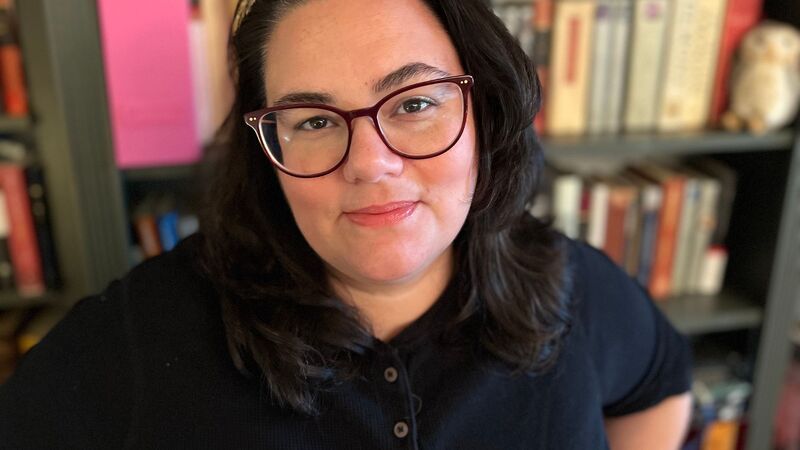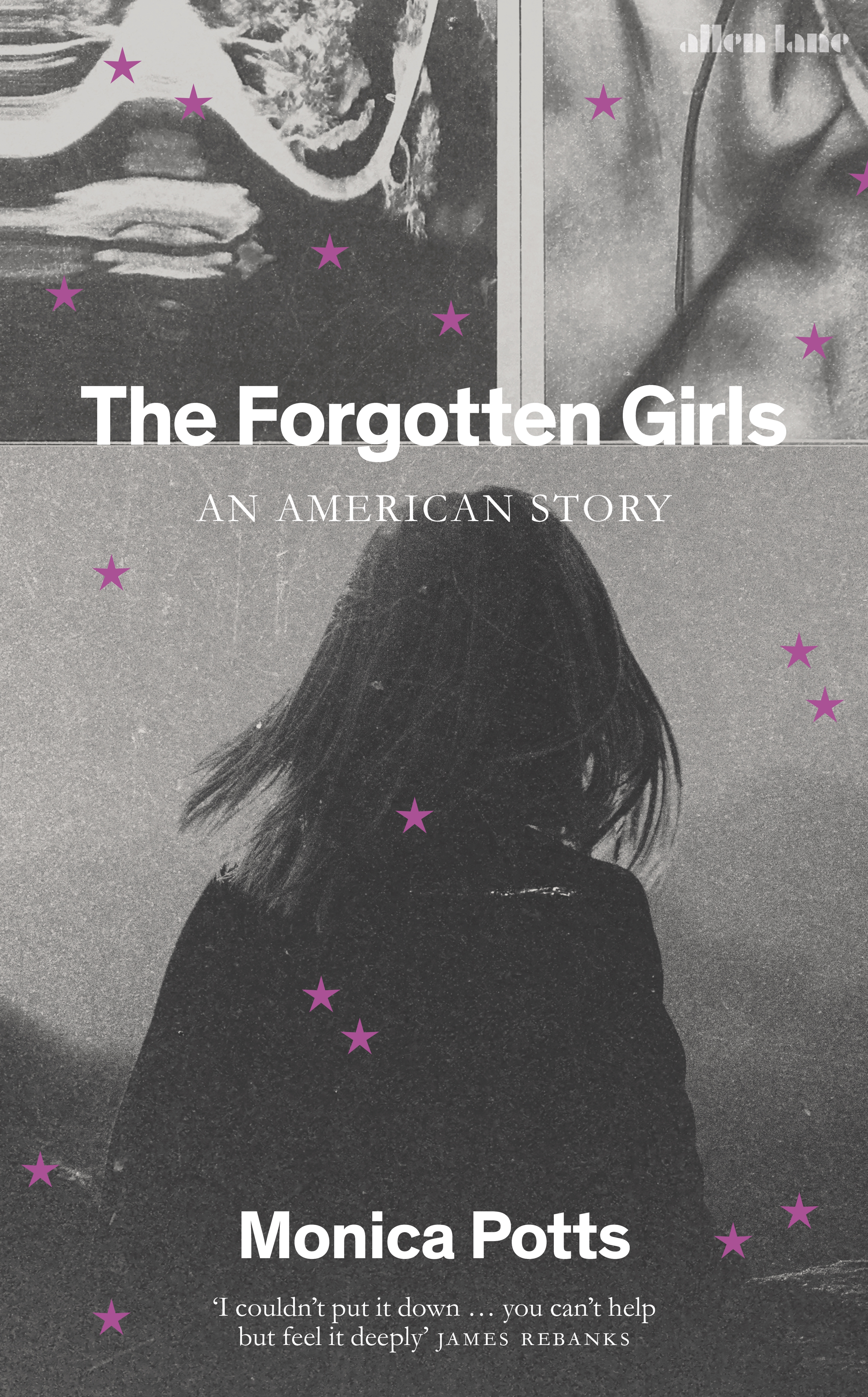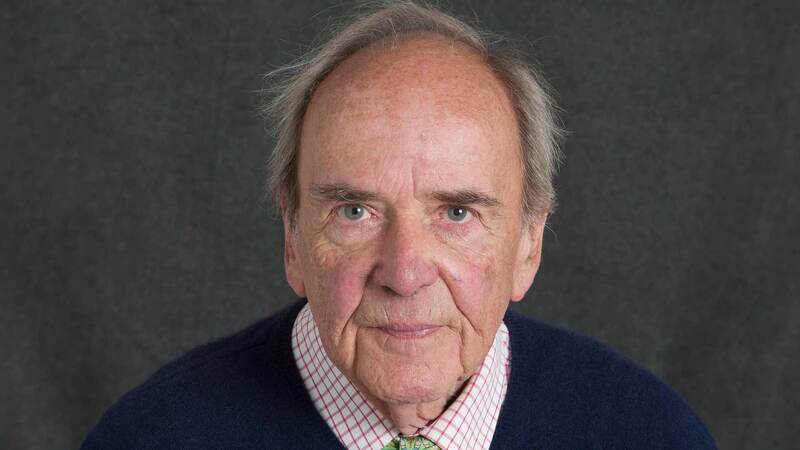You are viewing your 1 free article this month. Login to read more articles.
Monica Potts examines her home city in her latest book, The Forgotten Girls
 Caroline Sanderson
Caroline SandersonCaroline Sanderson is a non-fiction writer, editor and books journalist. Her books include a travel narrative, A Rambling Fancy: in the F ...more
Monica Potts returned to her home town to understand how the childhoods she and her friend had experienced resulted in such dramatically different adult lives.

Caroline Sanderson is a non-fiction writer, editor and books journalist. Her books include a travel narrative, A Rambling Fancy: in the F ...more
Growing up white and working-class in Clinton, Arkansas, Monica Potts and Darci Brawner met in first grade and bonded over a shared love of reading and dreams of travelling to far-flung places and leaving their small home town behind. By early in high school they were firm friends, and star students with potentially bright futures. Potts—spurred on by her mother Kathy, who had always felt trapped by Clinton and the expectations of her generation—eventually gained scholarships and a place at college in Pennsylvania, fulfilling the cherished dream of pastures new. Darci stayed put, as did many others in their circle of friends, and her life took a very different trajectory.
Eighteen years later, Potts had become an award-winning politics reporter for the New York Times and the Atlantic among other publications (she now writes for news website FiveThirtyEight). Darci was jobless and periodically homeless, a lone parent of two children and trapped in a cycle of addiction to meth and prescription drugs.
As a journalist I had been visiting places that reminded me of home, and for once in my life I missed it
The personal and intensely moving story of their friendship—and Potts’ quest to understand how two such similar childhoods could result in such dramatically different lives—lies at the heart of her first book, The Forgotten Girls. Its subtitle is “An American Story” but like Tara Westover’s Educated this blend of memoir and incisive reportage evokes not only what it is like to come of age in working-class, white America but also the opportunity gaps we see in our own back yard. James Rebanks, author of The Shepherd’s Life, said of The Forgotten Girls: “It made me think of so many people’s lives in small towns and rural areas in Britain—a powerful reminder that when you forget about people and consign them to eternity in failing places you create something deeply harmful for all of us.”
While Potts once couldn’t wait to leave Arkansas, she thanks the state for being “such a challenging, confounding and beautiful muse” in her book’s acknowledgements. When we speak via video call, Potts, now in her early forties, explains her decision to move back there in 2017. “As a journalist I had been visiting places that reminded me of home, and for once in my life I missed it. My partner was ready for a change so we decided to take a leap and do it.” While they were both thrilled by the natural beauty and peace of the rural countryside, it was not long before Potts realised that Clinton’s problems were still there, “affecting everyday life in ways that you can’t always see from afar. I think I needed to experience that, to be heartbroken by this place and its limitations again.”
Learning lessons
Potts had previously reported on studies that showed falling life expectancy among the least-educated white people in America. “While we have known for a while that Black life expectancy is the lowest of any demographic group, this was a surprising finding for most people.” While investigating this trend, Potts read a study by two Princeton economists—Anne Case and Angus Deaton—who found that amid other poor health outcomes, this drop in life expectancy, especially for middle-aged white citizens, was attributable to increases in drug overdoses, suicides and complications from alcoholism, a trio of maladies they term “deaths of despair”. The use of the word “despair” made Potts realise that this was a story that could not be told solely through data and statistics. It was also a story she was perfectly placed to tell. “There are not a lot of American journalists from a working-class background—it tends to be a more élite field. I knew I would be able to describe the complexities of working-class life better than most.” Even before moving back to Clinton, the idea for a book was born.
There are all these unexamined stereotypes and clichés about what small towns are like. I felt motivated to paint Clinton as a real and complex human place
Then Darci got back in touch via Facebook. Potts’ getaway to college had caused a fracture in their friendship; in fact, she admits in the book to avoiding Darci. “When I left home at 18, she had been kicked out of high school… Thereafter, as I built my life elsewhere, I tried not to think about what I’d left behind and what life was like for the people I loved,” she writes. On a trip back to Clinton in 2015, Potts finally reconnected with Darci in person. “We were catching up on our lives, and when I told her about the book I was researching, she said: ‘Maybe you should just write about me.’ She was laughing. But the idea that it should be a personal book felt more right the longer we thought about it.”
In the process of telling her friend’s story, Potts tells me she wanted to write a book about how “the forces around us come to bear and shape the decisions we make”. Since I first read The Forgotten Girls I have scarcely stopped thinking about this, asking myself questions about what it really means to succeed, and the factors—both personal and political—which stifle or boost our life chances. The answers are, of course, complicated and the strength of this book is that it refuses to allow trite conclusions about working-class people, or small-town mindsets, or Bible Belt America. Potts is, after all, cut from the same cloth. “There are all these unexamined stereotypes and clichés about what small towns are like. I felt motivated to paint Clinton as a real and complex human place.”
I’m sure some people will think I’m the worst thing that ever happened to Clinton. But maybe those people need to hear what I’ve said
The good news postscript to the book is that Darci is doing well. Potts saw her just before Christmas: she has a job and her life has regained some stability, thanks to recovery programmes and counselling. She has not yet read The Forgotten Girls. “She is excited about the book. I think she’s also very nervous,” Potts says. Its author is nervous too. “It does feel like I really put myself out there and, for a while after I finished it, I thought: what have I done? I’m sure some people will think I’m the worst thing that ever happened to Clinton. But maybe those people need to hear what I’ve said.”
Starting over
While she is learning to no longer blame herself for her youthful decision to distance herself from Darci, Potts still holds the adults in Darci’s life responsible for not intervening when she started skipping class at high school. “It’s not about the fact that Darci didn’t go to college or succeed in a way we might think important. It’s the fact that she experienced real pain after I left because of this hands-off attitude to her suffering.” In the book, Potts is also critical of the pervasive influence of the evangelical church and its insistence on trusting fully in God’s plan; eyes turned to heaven instead of focusing on the issues which plagued the town, including the drug addictions to which Darci fell prey. “I never heard in church, or elsewhere, a group of people sit down and say, ‘OK, how do we solve this problem?’,” she writes.
Extract
When I began my investigation into what was happening to women like Darci, I didn’t realise how personal and emotional this journey would become, that it would take me through layers of long-buried grief, and the pain of watching a loved one fall apart. Instead, as I set out, my plan was first to remember how Darci and I had lived as children, when both our young lives had held so much promise. Then I would retrace all that had happened in the years after I left and she stayed, mapping the steps that had taken us further apart. I would find the answers to all my questions in the space that had grown between us.
More widely, Potts believes that “the flipside of American independence is a tendency to abandon people to their fates” and that it might be time to think again about the constant drive towards the American Dream. “I do think about it a lot: how do we help people, how do we intervene when things are going badly? It’s not an easy question for anyone to answer. I always felt like Darci would blaze her own trail and I’m not sure she would have listened to anybody. But I do think it’s worth considering what we might change about the way life unfolds for many people. I don’t think we ask enough big questions.”











